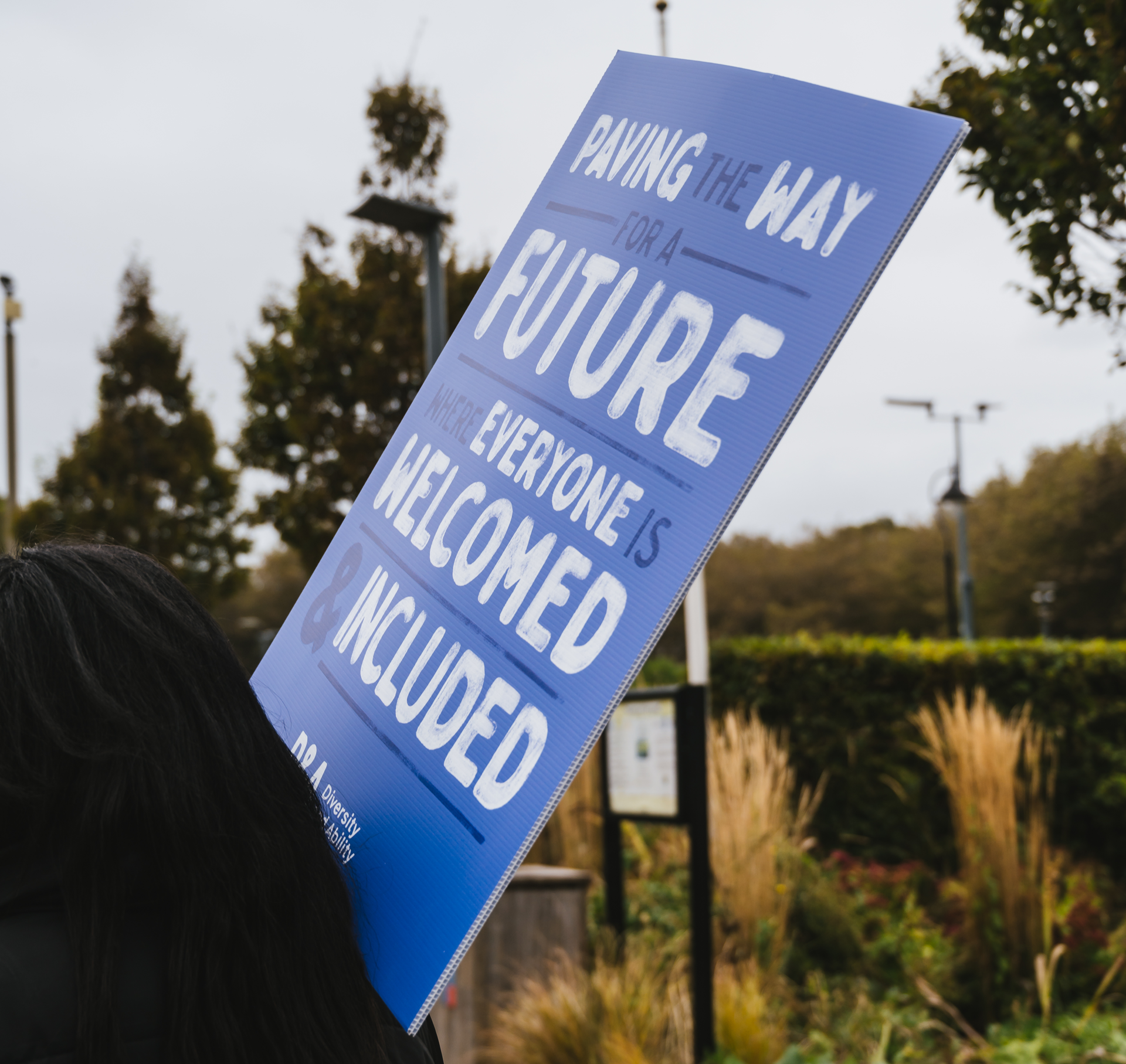Digital Inclusion and Homelessness
There is a strong correlation between homelessness and undiagnosed learning differences. Research also shows that 44 percent of homeless people have a mental health diagnosis, in comparison with 23 percent of the general population.

Making your work more inclusive means opening up access to the clients, communities and service users who will most benefit from your support.
Whether it’s one-to-one workplace coaching or assistive technology training for staff, or disability inclusion and neurodiversity workshops that place lived experiences of homelessness at their foundation, get in touch with us to find out how we can support you to support others.
If left unsupported, this can create a cyclical state of marginalisation that is hard to break out of. Limited access to technology and the online world compounds this.
D&A have been working with organisations such as Crisis homelessness charity and St Mungo’s, since 2014, delivering a series of workshops exploring free technologies that assist with core life skills and boost digital literacy. We focus on building strategies around organisation, wellbeing and memory, as well as developing literacy and numeracy skills.
Through providing tailored support and access to tools/ technology, this initiative aims to:
- Minimise long-term unemployment.
- Address confidence issues surrounding neurodiversity and education.
- Increase digital literacy and online access.
- Enable increased access to support, housing and funding.
- Boost participation in society and access to opportunities.
Our case studies
Digital justice is a matter of social justice
People who are digitally excluded are also typically socio-economically disadvantaged. This creates a vicious cycle of further marginalisation. A lack of digital accessibility can have a negative ripple effect on many areas of a person’s life. For example impacting job and housing opportunities, as well as day to day activities like attending remote GP appointments or applying for benefits. Here are some resources to help you develop digital skills, get connected and stay safe online.
Good Things Foundation is working with Virgin Media O2, Vodafone and Three to make sure no one is left without an internet connection.
If your organisation supports people who can’t afford broadband at home and struggle to pay for mobile phone contracts or top ups, you can register to get free mobile data SIMS and vouchers to distribute to people who need them.
The UK National Databank was set up for organisations that are members of the Online Centres Network. If you’re not a member yet, it’s free and easy to get involved.
Learn My Way, brought to you by the The Good Things Foundation, offers free courses to learn digital skills to stay safe and connected. You can learn about topics such as:
– Using your device (eg. using a keyboard, mouse or a touchscreen)
– Online basics (eg. using the internet, online forms, email)
– Office programs (eg. creating documents and spreadsheets)
– Internet skills (eg. video calling, online shopping, socialising online)
– Online safety (eg. keeping your device safe, being safe online & keeping your personal data safe)
– Finding a job online (eg. job hunting online)
– Improving your health online (eg. accessing GP services online, navigating the NHS website)
– Managing your money online (eg. online and mobile banking)
– Public services online (eg. using public services online and accessing universal Credit)
9 million people lack foundation level digital skills: vulnerable people being more likely to be digitally excluded
Lloyds Bank UK Consumer Digital Index 2021
Sign up to our newsletter to find out how you can celebrate difference
Sign up